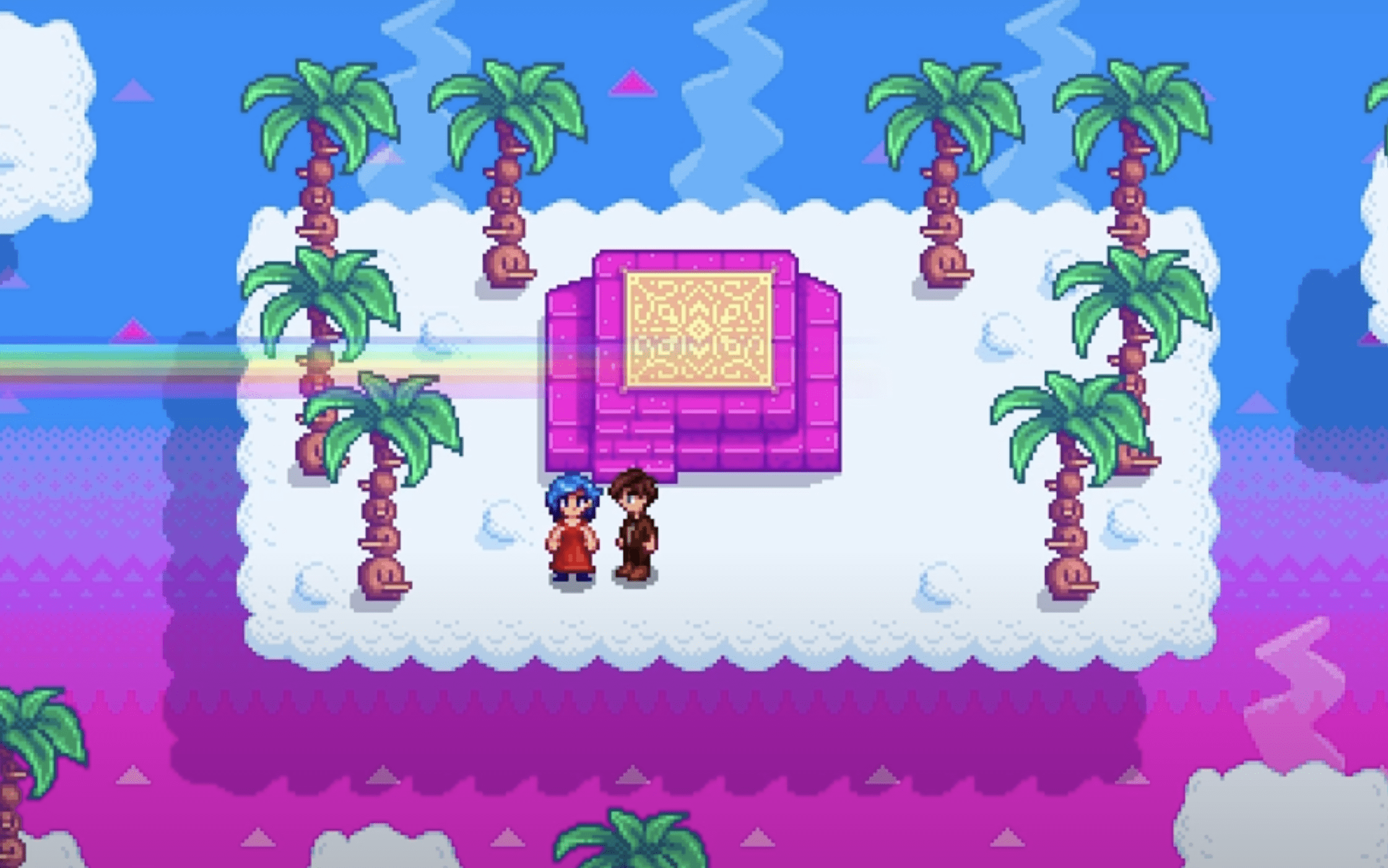For this week’s Critical Play, I decided to go back to my Pandemic Stardew Valley Farm and interact with Emily, my wife. The only difference is that I did it after having read our required sections from Shira Chess’s Play Like a Feminist. While Stardew Valley can be enjoyed by a wide range of people, its target audience tends to be players who enjoy open-ended games, RPGs, and games that rely on some form of narrative. The game was developed by Eric Barone, who is also known as ConcernedApe, and it is well known that he developed it almost entirely by himself! Even though it is available on almost every platform, I played it on my PC. Honestly, I hadn’t realized how playing Stardew Valley can be an enlightening experience from a feminist perspective. This game allows players to inhabit a world where they’re not bound by traditional gender roles or societal norms. This is especially true with the opportunity to marry any character, regardless of gender, which resonates well especially with intersectional feminism.
As described in the article, the fact that the game is not necessarily climax-centric enables it to escape a, “heterosexual masculine perspective” . It truly is interesting to see how just a narrative choice taking things day-by-day, already helps break from heteronormativity. I also realized just how much depth there is with each character. Emily, for example, is unique and characterized beyond her status as a marriageable NPC. She’s depicted as a free spirit: someone who is always dancing. She is independent, works in the local saloon, and is a creative hobbyist in tailoring and gems. From a feminist lens, Emily’s independence, self-expression, and creativity is already a form of empowerment. Even on a broader scale, while playing with Chess’s writing in mind, I noticed how the issues of mental illness and environmentalism present in the game truly give more room forfeminist narratives to emerge.

However, Stardew Valley isn’t without its issues. One critique might be that despite the characters’ depth, their personal growth often feels contingent upon the player’s intervention. This can unintentionally reinforce a “savior” narrative, which isn’t very empowering or feminist in nature. The game could also be critiqued for its lack of diversity. The characters, while having distinct personalities, are predominantly white. A more representative cast of characters would better serve intersectionality. Additionally, I kind of realized that the game could do more to challenge traditional gender norms. When playing (and, let’s be honest… Reading the Stardew Valley Wiki), I noticed how many of the town’s men do “masculine” jobs, like blacksmithing or running a ranch, while women are often found in “feminine” roles, like nursing or teaching. It would be cool if, for example, Stardew Valley further broke down gender norms by adding this to their discussion, or making characters be able to change jobs. However, Stardew Valley is truly amazing and already highlighted much needed conversations in games; these suggestions are just potential observations inspired by Chess’s reading on Telling Feminist Stories in Games!



